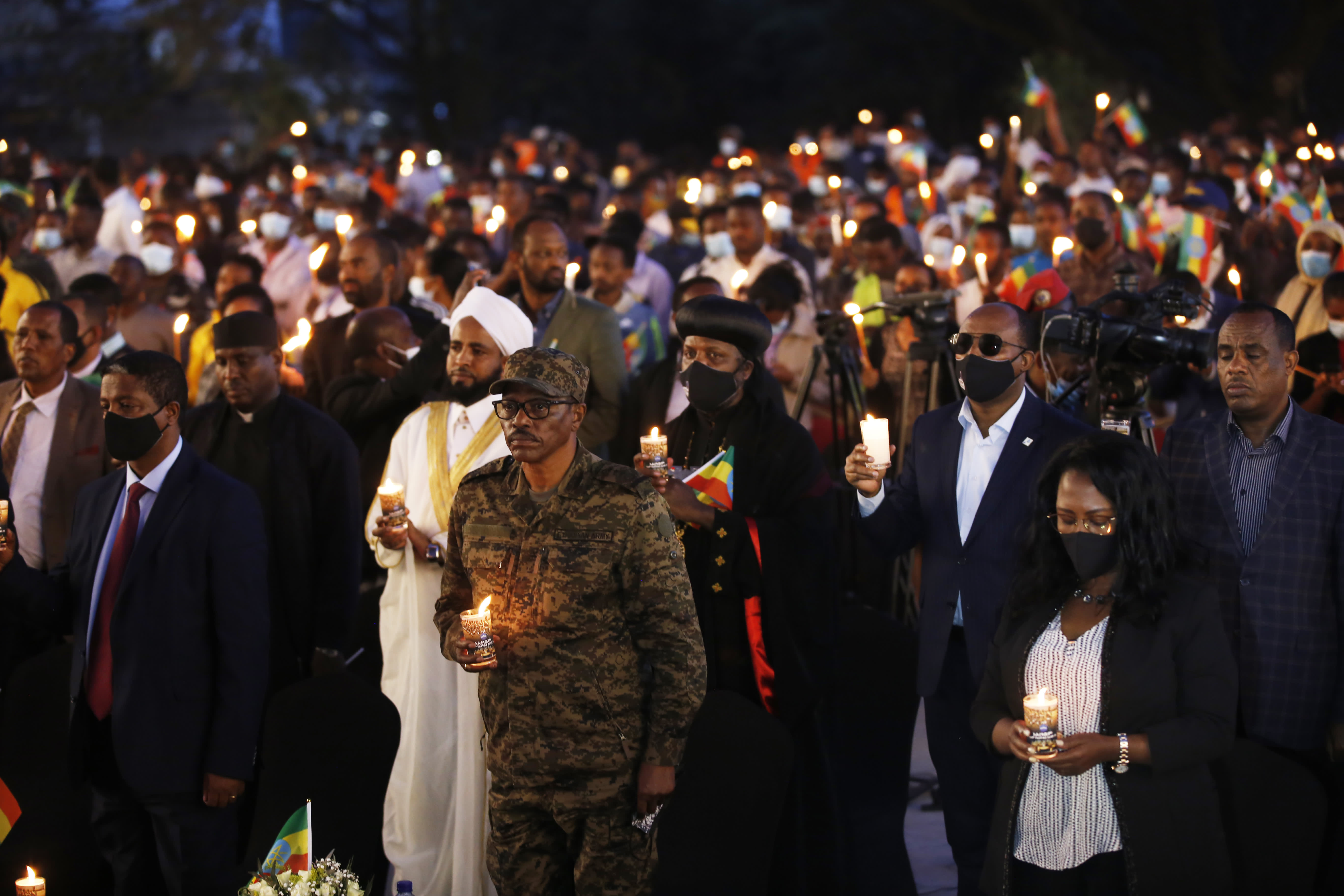
In Addis Ababa (Ethiopia), people light candles at a memorial service to the Tigray victims, organized by the city administration on November 3, 2021. Minasse Wondimu Hailu/Anadolu Agency via Getty Images
Rebel forces have begun to advance on the capital of Ethiopia one year after fighting broke out in the northern Tigray region. Authorities are urging citizens to mobilize. On Tuesday, the government declared a six month state of emergency. This was days after Prime Minister Abiy Ahmad and Addis Ababa instructed Ethiopians to arm themselves to defend their communities against the Tigray Defence Forces. These forces are a combination of former rulers of the Tigray People's Liberation Front as well as other rebel groups. Nine anti-government groups announced Friday the formation of the United Front of Ethiopian Federalist and Confederalist Forces in an attempt to overthrow the government.
All of us have a responsibility to die for Ethiopia. Abiy Ahmed Prime Minister, Ethiopia
The alliance also includes the TPLF. Since November 2020, the TPLF has been involved in a conflict that has displaced over 2 million people and killed thousands. Last week, Addis Ababa's city administration held a candlelit service of condolence for victims of the Tigray war on its one-year anniversary. As fears mount over the possible collapse Africa's second-largest nation, diplomats and regional leaders have been scrambling to bring warring parties to the table. International human rights violations The Office of the U.N. Commissar for Human Rights and the Ethiopian Human Rights Commission published a joint report on Wednesday detailing human rights violations committed by all sides against Tigray civilians. According to the joint investigation, "there is reasonable ground to believe that all sides to the conflict in Tigray committed, at varying levels, violations of international humanitarian, refugee, and human rights law." Some of these may be war crimes or crimes against humanity. While the Ethiopian government has pledged to investigate allegations of human right abuses, Laetitia Bader (Horn of Africa director at Human Rights Watch) has called for "robust international inspection."
Demonstrators marched in Washington, DC, November 4, 2021 to mark the one-year anniversary for the Ethiopian government’s decision to send troops into the country’s northernmost Tigray area. AFP
She stated that concerned governments must urgently support an independent, international investigation mechanism that can provide credible scrutiny, preserve evidence for future trial trials, and facilitate accountability. Victims of abuses, and the affected communities, deserve nothing less. There have been reports that government forces have taken Tigrayans to the capital. This raises fears about ethnically motivated violence. After Washington expressed concern about hostilities' expansion and escalatence, the U.S. Embassy in Addis Ababa authorized the departure of family members and non-emergency staff. It also asked private citizens to flee the country.
Zinash Tayachew, Ethiopia's Prime Minister, and Abiy Ahmed Ali, his wife, participate in a memorial service to remember the Tigray victims, organized by the city administration in Addis Ababa (Ethiopia) on November 3, 2021. Anadolu Agency
